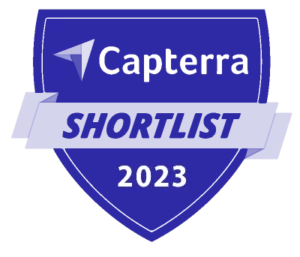Vacation rentals sometimes get damaged—unfortunately, it’s one of the risks of renting properties. However, you can take measures to protect yourself from financial risk. This includes adequate insurance, creating a vacation rental agreement (signed by the guest), and charging a refundable security deposit.
This article will cover security deposits, what to do in case of damages, and how to implement them in your vacation rental operations. You’ll find that once you have damage deposits set up, it’s an excellent way to safeguard your properties!
What are security deposits, and how do they work?
A security deposit is an agreed amount of money that guests pay to cover the costs of any damages they may incur during their stay. If there is no damage after check-out, you return the deposit to the guest in full. Suppose some damage needs fixing or additional cleaning is required. In that case, money is deducted from the deposit to cover the expenses before returning the rest.
Types of damage to your property
Of course, we all have different ideas of what constitutes damage, so let’s classify the different types first.
Regular wear and tear
As guests use your property, general wear and tear are bound to occur. It could be anything from a broken plate to scuff marks on the walls. You shouldn’t use the damage deposit for minor damage like this—in fact, some local vacation rental security deposit laws prohibit it. Instead, your rates should include a reserve for wear and tear, which you will have accounted for in your business plan.
Occasional damage
You may notice missing or broken items or perhaps instances where significant cleaning is required. Some guests could perceive this as general wear and tear. You’ll have to use your best judgment here and weigh the pros and cons of withholding the deposit to cover the damage. Some guests could turn around and leave a negative review if they feel slighted.
Rare and severe damage
Broken windows or furniture fall under this category. Expensive damage like this is uncommon, but it can happen. Significant damage situations are the best time to withhold the deposit but as always, proceed with caution. Only charge the guest if they are clearly at fault.
Note that it’s not always clear-cut. Furniture and assets deteriorate over time and are therefore more susceptible to breaking.
Empower your cleaning and maintenance crews to look for and report assets at risk of breaking down to avoid ambiguous situations. A good tip is to take regular photos of each room or expensive investments.
The legal aspect of vacation rental security deposits
Before you implement a refundable damage deposit policy, you must consult your state and city’s vacation rental security deposit laws. Each market is different.
Time frame for refunding a damage deposit
Most states have laws that specify a time frame to refund the damage deposit. It generally ranges from 14 to 45 days, but we recommend returning the fee as soon as possible. Note that refunding the deposit late could lead to negative reviews.
Guests should also not have to communicate with you after check-out to get their security deposits back. Rely on your cleaning staff to prevent negative reviews from holding onto deposits too long. Make it easy and streamlined for your team or contractors to report damages. Cleaning and turnover apps have features that allow easy reporting and even include photos.
Communication
When you ask for a security deposit, have guests agree to terms and conditions. Your rental agreement is the perfect place to highlight this. But you can include deposit information as part of the reservation flow or in a follow-up email after the booking takes place.
What’s important here is to explain what constitutes damage and when the deposit return will occur. Add that if you have clear and precise house rules, there shouldn’t be any communication issues.
If further action is needed
Damage deposits are generally small sums. However, if the damage costs more to repair than the deposit itself, you may want to seek the balance from your guests. They might think that the deposit waives further liability, but this isn’t the case. Remember that if you’re considering legal action, always get advice from a lawyer or attorney.
Your other option is to contact your insurance provider. Traditional insurance providers will likely payout. However, your rates may also increase. That’s why it’s best to have per-reservation vacation rental insurance. Providers like Safely and InsuraGuest charge a set fee per reservation and pre-screen the guests as part of the coverage requirements. If there are damages and they payout, the coverage rate won’t increase. For a few more dollars per reservation, this is an expense that’s worth it!
How much should a damage deposit be for a vacation rental?
It’s essential to get the balance right. You’ll want to charge your guests enough to deter them from risky behavior. But don’t set it so high that it drives guests to cancel the booking. You also have to take into account the property type and what it offers. Obviously the security deposit on a tiny home rental will be much lower than on a 5 bedroom 4 bathroom luxury cottage.
That said, there are two types of vacation rental deposits: fixed-rate and percentage.
Charging a fixed security deposit
As the name suggests, this is a fixed amount regardless of the nightly rate and length of stay. Many hosts charge a standard refundable damage deposit between $250 and $500. Luxury rentals or larger properties can range from $500 to $2,000.
You may want to check what similar properties in your area are charging—it’s important to stay competitive even on that front. Consider the property’s amenities when estimating this.
Charging a percentage
Percentage-based security deposits work based off the reservation’s total price and can vary between 10-20%. As an example; a villa renting at $4,000 a week, would require a $400 to $800 deposit.
Most vacation rental management properties go with fixed-rate deposits for simplicity. It’s much easier to automate into a process since the amount requested never varies. Going fixed-rate also covers more risk if the property is open to single-night reservations.
6 ways to collect vacation rental damage deposits
Respecting vacation rental security deposit laws is paramount here. Make sure your guests are aware they’ll be charged for a separate refundable damage deposit at the time of booking. Include it on their bill and explain the security deposit return conditions.
Checks: classic, but they come with challenges
If you opt for this method, you must keep a record of it. It’s not the quickest option. And it’s the least easy to automate. The check is expensive for the banks. Moreover, it’s common for a guest to give a deposit check without sufficient funds because no one imagines this deposit will be debited. Security deposits by check also pose logistical problems. You have to be face-to-face to take the check and to return it. A person is therefore needed to welcome the guests and be present when they leave. If you are used to asking for the check to be sent by post, this requires your client to arrange to buy a stamp and send it. The customer may also legitimately have trust issues with the idea of sending a check by post. Finally, in case of the need to cash an amount lower than the check, there is an obligation to take the entire amount and refund the difference afterward.
Cash: not the best when it comes to deposits
Cash is used when owners want to be sure that they will be covered in the event of a problem.
However, cash has several drawbacks. This forces the guest to withdraw money, which may entail ATM withdrawal fees, especially for a foreign customer (eg: around 4.5-5%). At the end of the stay, foreign travelers, therefore, find themselves with large sums of cash that are of no use to them. They will then have to make a conversion into their national currency with the associated fees. In addition, depending on the bank account and the bank, it is not allowed to withdraw several hundred euros at once while the deposits are often in this order of magnitude. There may also be a lack of trust on the part of the end customer.
You should also consider the risk of loss or theft. The owner must transport these sums to safe places, then bring them back before the departure of the customers. So now we’ve added two in-person contacts which have their own costs… And now you have to multiply those steps for all your properties. In addition, in the event of deterioration observed after their departure, it is no longer possible to cover the costs.
Bank transfer: can be automated, but hard for the guests
This approach allows the owner of a property to be certain of obtaining compensation in the event of damage. Its other advantage is its strong psychological impact: if the tenant wishes to be reimbursed in full, he must pay attention to the rented property. The transfer therefore makes it possible to guarantee the funds. Transfers are always made in advance, which allows the owner to also cover himself against a no-show or a non-payment.
This method is very reassuring for the owner.
However, this approach also has many shortcomings. Human error may come into play here while adding bank account details manually. You should also be aware that bank charges may apply. It is also quite tricky to request a transfer from your customer. This is not practical, the guest must have the funds for the deposit and the payment. There is always reluctance because the two parties do not necessarily know each other. It is also an additional booking step for the end customer. Once he has issued the transfer, he must also ensure that the funds are returned quickly, which can become worrying.
Credit card preauthorization: straightforward, and easy to automate
Place a temporary hold on your guest’s card. However, there is usually a short time limit, so this option is most appropriate for short-term guests. Because this option is digital, it’s possible to automate it in your guest communication flow.
Charge and refund: one of the safest options for the host
You can charge the full amount on their card while booking, and then refund them once you’ve checked there’s no damage. This is one of the most popular options because it’s easy to automate. It’s also the safest for you and the guest. You don’t have to hold onto funds, and the credit card company protects the guest.
Swikly (a specialized security deposit service)
To avoid all the constraints of traditional practices, Swikly invented the ‘swik.’ A ‘swik’ is a banking transaction that secures a vacation rental or reservation using an online security deposit.
A ‘swik’ is created from a credit card imprint which must be entered by your customer on a secure form. It can be secured online for a few hours or for several months and the secured amounts are neither blocked nor debited. The credit card limit is not impacted by the securing of a ‘swik’ and securing a reservation with a ‘swik’ is immediate.
You no longer have to wait for a bank transfer or a deposit check. All you have to do is fill in the amount you want to secure, your client’s email address, etc. and send your request. Your guest receives an email from Swikly and is invited to register his credit card on the website. By accepting your ‘swik’ request, your customer authorizes to be charged for the amount and for the time period you specify. When your customer honors his commitment, you have nothing to do, the credit card imprint is automatically canceled. In the event of a problem or cancellation by your customer, you can request partial or full payment of the amount of the ‘swik’ in a few clicks.
There are many ways to collect the deposit but bear in mind that each distribution platform—including Airbnb, Vrbo, and Booking.com—has different processes you must follow. It’s one of the many reasons hosts and managers are building direct booking sites. You’ll streamline the other deposit structures imposed by listing sites and OTAs by intaking your reservations. It’s also a great way to regain control over your booking processes, become more independent, and save on commission too.
When should a damage deposit be returned?
When returning your damage deposit, your guests need to be given a clear time frame according to local laws. Inspect your property for damage as soon as your guests leave. If you don’t manage the turnover directly, train your vacation rental’s cleaning staff to know what kind of damage to report. It takes training and follow-up on the manager’s side. Still, the potential for avoiding a serious issue is generally worth the effort.
Once you’re sure there’s no damage, return the deposit as soon as possible—guests will appreciate your promptness. Let your guests know that you’re returning it, and take the opportunity to follow up with them and ask for any feedback.
How listing sites handle security deposits
If your guests booked through listing sites or online travel agencies (OTAs), you have the following recourse:
- Airbnb: You’ll have 48 hours after check-out to claim the deposit. After this time, Airbnb purges the credit card information. Airbnb’s deposit doesn’t go through your property management software (PMS). You’ll have to deal with Airbnb directly to get the deposit.
- Vrbo: Since hosts and managers listing on this site are considered merchants of record, they have the option of collecting the security deposit. Your PMS should be able to capture that deposit. Collecting the deposit can be done at the time of reservation or at check-in.
- Booking.com: Deposits are handled through the guest’s credit card. Similar to Vrbo, you have the option to handle the deposit at the time of reservation or when the guests arrive.












